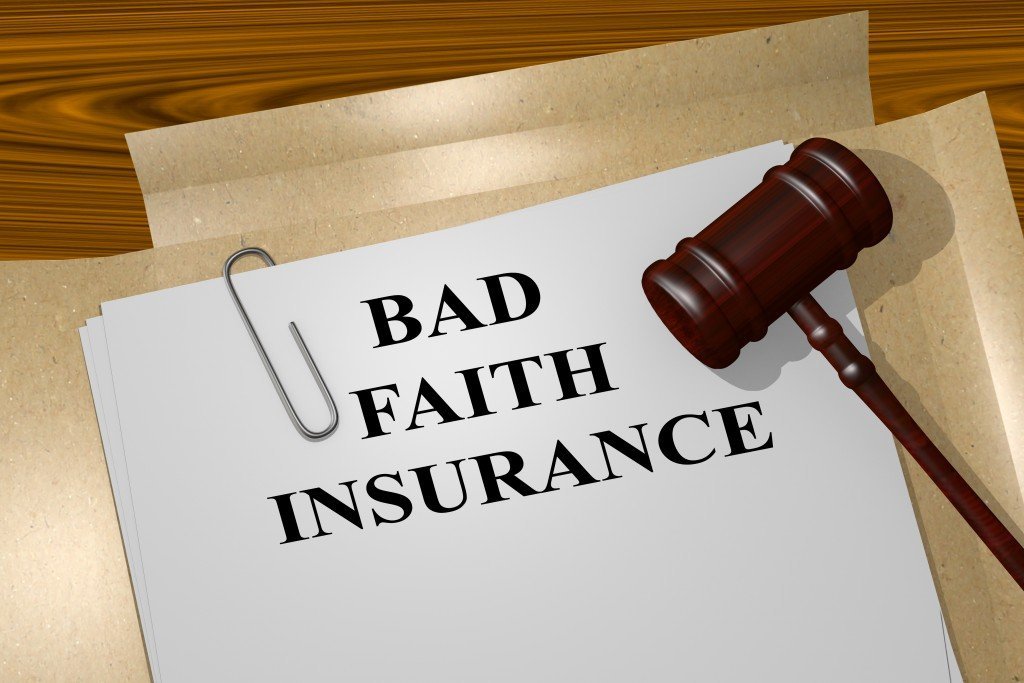Bad faith insurance

Introduction
When we pay for insurance, we expect to be protected in case of an accident, illness, or other unfortunate events. However, insurance companies are not always on our side. Some companies engage in bad faith insurance practices, which can leave policyholders without the coverage they need when they need it the most. In this article, we will discuss what bad faith insurance is, how to recognize it, and what to do if you become a victim of it.
What is Bad Faith Insurance?
Bad faith insurance is a term used to describe an insurance company’s unfair or dishonest treatment of its policyholders. When an insurance company acts in bad faith, it can deny legitimate claims, delay payments, or offer inadequate settlements. This can leave policyholders with financial losses, emotional distress, and a sense of betrayal.
Signs of Bad Faith Insurance
Recognizing bad faith insurance can be difficult, but there are some signs to watch out for. Here are some examples:
Unreasonable Delays
If an insurance company takes an unreasonably long time to process your claim, it could be a sign of bad faith. Delays can be used to wear down policyholders and force them to accept low settlements.
Lowball Offers
Insurance companies may offer settlements that are much lower than what the policyholder is entitled to. They do this to save money, even if it means leaving the policyholder with inadequate compensation.
Misrepresentations
Insurance companies may misrepresent the policyholder’s coverage or make false promises to get them to sign up for a policy. They may also misrepresent the value of the damages caused by an accident or other covered event.
Refusal to Investigate
If an insurance company refuses to investigate a claim, it could be a sign of bad faith. Companies have a duty to investigate claims in good faith, and failure to do so can be a breach of contract.
What to Do if You Suspect Bad Faith Insurance
If you suspect that your insurance company is acting in bad faith, there are several steps you can take to protect yourself.
Keep Records
Document everything related to your insurance claim, including correspondence, phone calls, and medical bills. This will help you prove your case if you need to take legal action.
Contact Your State’s Insurance Regulator
Each state has an insurance regulator that oversees insurance companies operating within its borders. Contact them if you believe your insurance company is acting in bad faith.
Hire an Attorney
If you believe you have a case against your insurance company, consider hiring an attorney who specializes in bad faith insurance cases. They can help you navigate the legal system and ensure that your rights are protected.
Conclusion
Bad faith insurance is a serious problem that can leave policyholders with financial losses and emotional distress. However, by recognizing the signs of bad faith and taking action to protect yourself, you can reduce the risk of becoming a victim. Remember to keep records, contact your state’s insurance regulator, and consider hiring an attorney if necessary.
FAQs
1. What is the duty of good faith and fair dealing?
The duty of good faith and fair dealing is an implied covenant in every insurance contract. It requires insurance companies to act in good faith and deal fairly with their policyholders.
2. Can an insurance company be sued for bad faith?
Yes, policyholders can sue their insurance company for bad faith. However, the burden of proof is on the policyholder to show that the insurance company acted in bad faith.
3. What damages can be recovered in a bad faith insurance lawsuit?
Policyholders may be able to recover damages such as the amount of the claim, emotional distress, and punitive damages.
4. How long do I have to file a bad faith insurance lawsuit?
The time limit for filing a bad faith insurance lawsuit varies by state. In some states, the time limit is as short as one year from the date of the bad faith conduct, while in others, it may be longer. It’s important to consult with an attorney to determine the time limit in your state.
5. Can I switch insurance companies if I suspect bad faith?
Yes, you have the right to switch insurance companies if you suspect bad faith. However, it’s important to research and choose a reputable company to avoid similar issues in the future.




